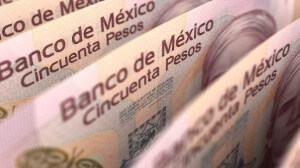THE CORONAVIRUS MIGHT TAKE THE BACKSEAT AS MARKETS’ FOCUS SHIFTS TOWARDS GEOPOLITICS
The latest world trade figures for March showed a pronounced decline in world trade volumes, as they fell 4.3% YoY, according to the CPB’s latest World Trade Monitor report. From a regional breakdown, the decline was the sharpest in the Eurozone (-9% YoY; including both intra- and extra-Eurozone foreign trade). Elsewhere, foreign trade volumes decreased 5.2% YoY in the US and 0.5% YoY in China. Unsurprisingly, global industrial production volume weakened as well – falling 4.7% YoY in March. On a forward-looking basis, we might see dreadful world foreign trade data in 2Q20, as the number of idle container ships has been rising throughout May.
On the global political front, there is a lot going on, again.

S&P 2,955 +3.20%, 10yr Treasury 0.70% +1.63bps, HY Credit Index 610 -62bps, Vix 27.81 -3.73Vol
The domestic news flow became a bit more positive in the US (e.g. some states easing lockdown restrictions fostering hopes about an economic recovery) – just enough to cement weekly gains on Friday. Consequently, most stock indices finished the week on a positive note: the S&P 500 rose 3.2%, the Nasdaq Composite gained 3.4%, whilst the Russell 2000 increased 7.8%. US corporate bonds had a strong week as well. Spreads on these assets somewhat tightened indicating the Fed’s stimulus measures to ease market strains have been working, whilst investors might expect economic activity in the US’ to normalise sooner rather than later. The trade-weighted DXY index declined 0.5% during the week, whilst the US Treasury remained broadly stable (the 10-year yield was 0.67% at the end of the week).

Eurostoxx 3,001 +5.65%, German Bund -0.44% +4.40bps, Xover Credit Index 461 -60bps, USDEUR .914 -0.75%
Stock indices in Europe headed north during the week – implying that stock investors could have taken the view that the European economies are through the worst. In this context, the German Dax index delivered one of the strongest returns until the end of Friday trading hours, as the index rose 6.6% in USD. Yield movements in the Euro Area’s sovereign bond market indicate that investors see an improvement in the economy’s growth prospects, as risk premia on the periphery compressed (e.g. the yield on the 10-year Italian bond declined 27bp, whilst the 10-year German Bund yield rose 4bp).

HSCEI 9,620 -2.62%, Nikkei 21,271.17 +1.49%, 10yr JGB 0.01% 0bps, USDJPY 107.840 +0.26%
Emerging Asian stock markets were a mixed bag. By the end of Friday, the Vietnamese (+3.5% in USD), the Thai (+2.3% in USD) and the Indonesian (+1.9% in USD) indices were among the best performers within the region. Stock indices in China declined by the end of Friday trading hours, due to the renewal of the US-China tensions as well as those across the China seas.
Chinese premier Li Keqiang presented the government’s report for 2020 at the National People’s Congress (NPC, the legislature). The decision not to set a real GDP target for the first time in two decades was one of the key announcements. In place of the GDP target was a strong emphasis on the job creation (at least 9mn in urban areas), reducing poverty and thus promoting social stability. The quota for special local government bonds was also raised in an attempt to boost public infrastructure investments (e.g. 5G network, charging facilities for new-energy autos, transportation, water conservancy, etc.). Commitments in terms of fiscal stimulus policies were relatively modest, as the authorities estimate the fiscal deficit to be 3.6% of GDP this year. The government promised to take further reform steps towards a more market-driven economy with enhanced innovation capacity. Policymakers signalled that they are not in a rush to sharply ramp up additional debt to boost the economy, as they plan to stick to a financially more prudent approach.
The central bank of India (RBI) cut the benchmark policy rate by 40bp to a twenty-year low of 4%. The rate cut itself was unsurprising, but the timing of the decision was. The RBI extended the three-month loan moratorium by another three months to August.
A 25bp rate cut by the central bank of Thailand took the key policy rate to a record low of 0.50%. The latest reduction in interest rates is the third made by the monetary authority in 2020 in response to the coronavirus pandemic. The MPC said that it remained willing to use ‘additional appropriate monetary policy tools’ to support the economy in the coming months.
Indonesia recorded a current account deficit to GDP ratio of 1.4% in 1Q20 with the foreign trade in goods balance staying in surplus. Import compression on the back of slowing economic activity was the main reason for the improvement. According to the central bank of Indonesia, the current account to GDP ratio could be -2.0% for the year.

Investor sentiment significantly improved in Latin America, where the vast majority of the stock indices gained during the week. By the end of Friday, Brazil’s benchmark rose 10.9% in USD, outperforming its regional peers. The Brazilian index was followed by the Mexican (+5.9% in USD) and the Chilean (+5.5% in USD) indices.
The Deputy Governor of Mexico’s central bank saw further rate cuts in the pipeline and claimed that the end of the easing cycle has not been reached yet. The Deputy refrained from predicting the shape of the economic recovery, due to the high degree of uncertainty that characterises both the external and the domestic macroeconomic landscape. The key policy rate in Mexico currently stands at 5.50%, down from 7% at the beginning of this year.
According to the monthly economic activity metrics, Colombia’s GDP declined 4.9% YoY in March following strong growth in January and February. The degree of decline in activity looks sharp given that there was only one week of voluntary lockdown and another week in total lockdown in March.
Real GDP in Peru contracted 3.4% YoY in 1Q20 (down from +1.8% YoY in 4Q19), due to weakening domestic demand. Household spending declined 4.9% YoY, whilst investment activity shrank 19.6% YoY. In contrast, public spending rose 8.4% YoY. Meanwhile, Peru’s current account deficit was as narrow as 1.4% of GDP, whilst net FDI was 3.1% of GDP in 1Q20.
Despite the economic challenges posed by the coronavirus, economic growth in Chile remained positive in 1Q20, when real GDP growth was 0.4% YoY. During the quarter, household spending declined 2.2% YoY, whilst investment activity weakened 0.4% YoY. Meanwhile, contribution of net exports to overall GDP growth was +3ppt.
Argentina defaulted on sovereign debt for the ninth time in its history. The country officially entered into default on Friday after failing to make a USD 500mn interest payment on foreign debt. The default is Argentina’s third this century as the government of President Alberto Fernández did not reach a deal with bondholders to restructure about USD 65bn in foreign debt.

The South African TOP 40 stock index gained 6.1% in USD, outperforming its regional peers by the end of Friday. The index was followed by the Nigerian benchmark (+5.1% in USD) and the Moroccan index (+2.8% in USD).
The Egyptian government successfully completed a three-tranche Eurobond offering totalling USD 5bn on the 21st May. The issue was Egypt’s largest to date and was oversubscribed (over USD 12bn in total), allowing the arrangers to increase the order size from the original USD 3bn‑4bn to a larger issue and a longer maturity.
The World Bank approved funding in the amount of USD 43mn for Kenya to help fight the return of locust swarms (called the Emergency Locust Response Programme). Locust swarms are currently spreading and could peak in June or July, key months in the farm calendar, causing heavy crop losses and food insecurity. The World Bank hopes that the new programme would mitigate the damages. In a separate event, the World Bank approved a USD 1bn concessional loan for Kenya, in the form of direct budgetary support, to help to deal with the impact of the coronavirus pandemic and rebuild fiscal buffers. The fund disbursements by the World Bank follow the IMF’s USD 739mn aid earlier in May.
Delayed production data for February show strong growth in mining (+7.5% YoY), soft growth in retailing (+2% YoY) and a contraction in manufacturing (-2.1% YoY), according to Statistics Office on the 19-20th May, but the figures largely predate the global coronavirus pandemic. In a separate event, the central bank of South Africa further cut the key policy rate by 50bp to 3.75%. Rate cuts this year now total 275bp. The Monetary Policy Council expects lower rates to support the economy by mitigating the damage caused by the coronavirus and to foster economic recovery.
According to the Finance Minister, the Nigerian economy could shrink as much as 8.9% and in 2020 in a worst-case scenario without stimulus. The Nigerian government has been in talks with the World Bank for an economic relief package (worth about USD 1.5bn), which could be disbursed by September. Later, inflation metrics were released, which showed that annual inflation in Nigeria rose for the eighth straight month in April, to 12.3% YoY, lifted by higher food prices inflation (15% YoY).
This week’s global market outlook is powered by Alquity www.alquity.com

Money Matters – 17 April 2024
Guy Foster, Chief Strategist, discusses Iran’s attacks on Israel and what this means for markets. Plus, Janet Mui, Head of Market Analysis, analyses recent U.S.



